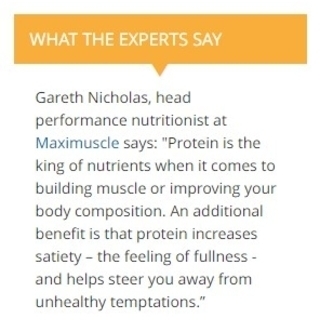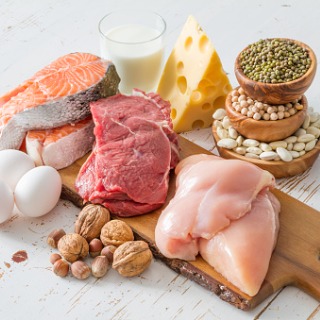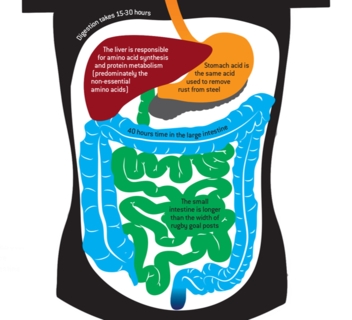Rise of the (HFSS) Resistance
Resistance is futile! The world of buying high fat, sugary or salty snacks is going to get tougher, and so it should, but don't lose hope. You can still pick up a tasty sweet-like treat; the protein bar revolution is here! But is it just a chocolate bar in disguise or is it a healthy way to add protein to my diet? I’m Gareth Nicholas, the head nutritionist at Maximuscle, let me share with you my thoughts and opinions on the role of protein bars, their benefits and how to pick the best one for you.
A healthy balanced diet
Whatever your goal, starting point, body composition or health status, we should all be striving to eat a healthy balanced diet. A diet that is nutrient rich and energy balanced to support your daily living and promote health. The common construct for a healthy diet is to eat 3 main meals (breakfast, lunch and evening meal) and then 2-3 healthy snacks to top up the energy levels throughout the day.
Snacking – good or bad?
For most people the thought of snacking conjures images of crisps, sweets, confectionery and fizzy drinks. A snack should be seen as a smaller meal to bridge the gaps in your diet. A way of keeping your macronutrients and micronutrients in check. The body adapts and thrives on a smaller regular eating regime, rather than 3 oversized meals. Snacking offers a chance to add in some much-needed nutrients. The big one, especially for those trying to get fit, maintain health or increase muscle mass, is the added inclusion of protein.
The above will take you away from Maximuscle.com. Gareth talks to LiveScience.com about the importance of protein and Vegan protein powders.
The power of protein
Protein is the king of nutrients when it comes to building muscle or improving your body composition. An additional benefit is that protein increases satiety – the feeling of fullness and hopefully helps steer you away from the unhealthy temptations. As an energy source, unlike fat and carbohydrate we are unable to store protein in the body. The protein we consume either helps to create muscle or is converted into a different form of energy. Fortunately, for the weight conscientious, the body actually uses some of the protein calories to convert protein, more so compared to fat or carbohydrate, so less protein is ultimately converted into stored energy (body fat).
Protein Bar benefits
It’s not to say that protein bars are a must have, but they offer a great tasting, confectionery style treat, whilst being nutrient conscious. Protein bars are often low in sugar, low to moderate in fat, high in protein and high in fibre. It’s a treat but without the cheat! Of course, with the reduction in nutrients such as carbohydrate and saturated fat, found in a typical chocolate bar, additional ingredients need to be added. One such ingredient/s is Polyols – sugar replacements. These are completely safe for human consumption but should be considered when balancing your diet across the day. What I mean is that, do not have a more than manufacturers recommendations, often 1-2 bars per day.
The big benefit is the protein these bars contain, for a good protein bar and depending on your dietary requirements, a bar that contains between 15-20g is a great choice. Providing a scientifically proven punch of protein that can effectively be utilised across a 2-3 hour period before you should eat again. To put that into context, here’s some typical foods and the relating protein content:
- 100g Chicken breast – 32g
- A medium egg – 6g
- 100g Prawns – 16g
- 100g Salmon – 25g
- 100g Beef steak – 31g
- 100ml Semi-skimmed milk – 4g
- 100g Almonds – 21g
- 100g Tofu – 18g
- 100g Chickpeas – 17g
Which is the best protein bar for me?
This really depends on you and why you are looking for a protein bar in the first place. Here’s a few questions to consider?
- Is it for a confectionery swap?
- What is your daily protein requirement?
- When are you eating this protein bar?
- Is it to support exercise?
- Are you a vegan or vegetarian?
- Are you gluten intolerant?
- Sugar or no sugar?
- Fibre or no fibre?
- How important is taste versus the nutritional value?
All of the above can be catered for and is exactly why there is such a plethora of choice. At Maximuscle and following consumer research and insights, taste was paramount but not significantly ahead of the nutritional requirements. We also understood that for many people want a bar that is high in fibre and suitable for vegetarians, or more accurately without the processing aid of collagen was important. Maximuscle Protein bars are low in sugar, high in fibre and contain 15g of protein, with a confectionery style taste and suitable for vegetarians.
Protein Bar Watch-outs
Many bars push a natural message, perhaps using more natural ingredients, such as concentrated fruit or nuts, but always check the nutritional label and see where that stacks up against your nutritional requirements. Natural foods are always a great approach, but it’s about balance. Also, watch-out on the protein callouts on the packaging, sometimes a protein bar can mislead you to think it is high in protein when in fact it is pretty low.
As you'll read, protein bars can be an excellent dietary addition, but they have to fit into your plan. For many of us they are a great way to keep on the right side of a healthy diet and adding a bit more protein in a convenient way. Oh, and they taste great!

















